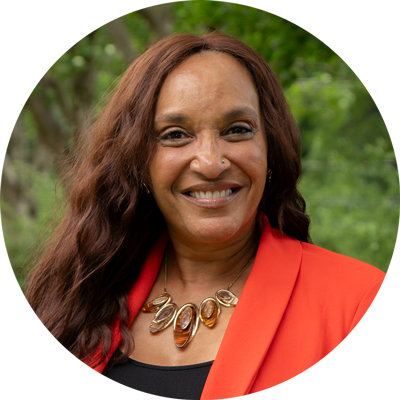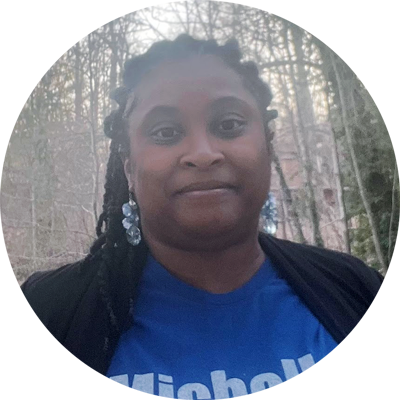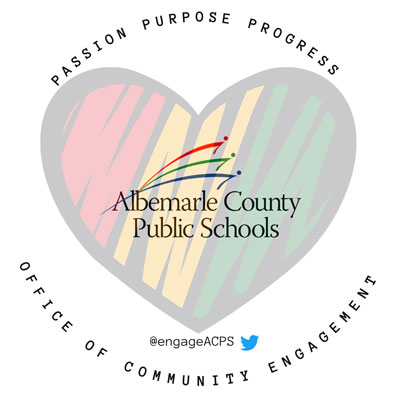In this month’s issue of Spotlight on Equity Education, we’re highlighting the origins of Women’s History Month and Developmental Disabilities Awareness Month, both celebrated in March. We’re also spotlighting several female ACPS equity advocates and providing midyear updates about the Culturally Responsive Teaching micro-credential and credentialing programs. Plus, our 9th annual ACPS Equity Conference and Awards Luncheon is coming up on May 18, and registration is open!
Women’s History Month
Women’s History Month, akin to Black History Month, originated as a one-week celebration. This week-long tribute to the global achievements of women had its roots in Santa Rosa, CA, and persisted annually until 1987, when it evolved into Women’s History Month. March, chosen for its alignment with International Women’s Day on March 8, became the month commemorating Women’s History.
The theme for Women’s History Month 2024 centers on Women Who Advocate for Equity, Diversity and Inclusion. Here in Albemarle County Public Schools, we have our own unsung heroes. Some of us are intimately acquainted with these women for their tireless efforts in developing, promoting and advocating for our students and staff. Their contributions are evident in the programs and resources we access daily, including Culturally Responsive Teaching credentials and professional development, Reframing the Narrative curriculum, and supporting the retention of diverse candidates within our school division. This month, we acknowledge the impactful work that merits recognition and honor due to their unwavering dedication.
Spotlight on Equity Education
Barbara Leilani Brazil Keys, Assistant Principal, Albemarle High School

Self-examination, partnership building, and using best practices to reach all of our students is what Culturally Responsive Teaching (CRT) was about when a committed and diverse team of educators started the ACPS CRT program a decade ago. I will always feel honored to be counted amongst that team. Ten years later, I continue to reflect on my own motivations and relationships to become a better ally to those who are most impacted by disparities in our community. Allyship is, even more so now, my daily goal. As an administrator at Albemarle High School, I’ve learned that being a good ally requires deep listening and intellectual humility amidst a rushed decision-making environment. As educators, we are under pressure, aren’t we? To stop and consider the consequences of our decisions, “an equity pause,” as my good friend and colleague Lars Holmstrom teaches, is imperative to ensuring our practices are building and strengthening our entire ACPS community.
Ayanna Mitchell, Director of Equity Education, Office of Community Engagement

I am deeply committed to advocating for student success and supporting families in Albemarle County Public Schools. I have held various roles, including instructional leader and building administrator, which provided insights into the complexities of the school system’s history and its impact on students. My primary objective is empowering families and fostering collaboration to ensure equitable opportunities for all students. Transitioning into the Equity Specialist role, I have collaborated on refining teaching programs and elevating the role of Diversity Resource Teachers. As the Director of Equity Education, I lead efforts to advance Culturally Responsive Teaching practices. Outside of school, I serve on boards and committees that empower black youth and provide mentorship opportunities.
Neeley Minton, Lead Coach: History & Social Sciences, K-12

I’m a champion for equity because I believe in giving all students access to anti-racist/anti-bias, inquiry-based instruction in Social Studies that prepares them to be members of our multiracial democracy. I believe that all students, K-12, are capable of thinking critically, developing evidence-based claims, and taking informed action to create justice-oriented communities. I believe in uplifting the agency, excellence, joy and resistance of people who have historically been marginalized while having students grapple with injustices in the past and present. Through the high-quality teaching of Social Studies, I believe we can save democracy.

Shay Carter-Shifflett, Program Manager: Talent Retention & DEI, Human Resources
I am a champion for equity because the next generation is watching!!! It is the duty of today’s leaders to model behaviors, conversations and practices that advocate for spaces that uplift and empower the many different identities in our community!
Resources for Learners
Included below are a few resources for you to explore and use with your learners:
Local Women Educators:
- Mary Carr Greer (Ivy Creek Foundation)
- Virginia Lee Murray (Murray Elementary School)
International Women’s Day:
- Women’s History Month for the Classroom (National Education Association)
- 32 Inspiring Books for Women’s History Month (We Are Teachers)
- Women’s History Month (National Geographic Kids)
- 37 Women’s History Month Activities and Ideas (We Are Teachers)
If you would like more information or ideas for your Women’s History Month programs, lessons or displays, please contact our Equity Specialists at ACPSEquitySpecialits@k12albemarle.org.
Development Disabilities Awareness Month
Developmental Disabilities Awareness Month is a nationwide initiative aimed at raising awareness about the inclusion of individuals with developmental disabilities in all facets of community life, as well as highlighting the obstacles they still encounter.
History of Developmental Disabilities Awareness Month
In 1987, the inaugural National Developmental Disabilities Awareness Month took place, following extensive advocacy efforts. Congress formalized this event by passing Public Law 99-483, designating March as “National Developmental Disabilities Awareness Month” and authorizing the president to issue a proclamation in its observance. President Ronald Reagan’s proclamation emphasized providing encouragement and opportunities for individuals with developmental disabilities to lead fulfilling lives and reach their full potential.
This proclamation was a crucial step in drawing attention to the needs and capabilities of Americans with developmental disabilities, including those with autism, cerebral palsy, Down syndrome, epilepsy, intellectual disability, and spina bifida. Over the past three decades, significant milestones have marked progress for the intellectual and developmental disabilities (IDD) community, such as the signing of the Americans with Disabilities Act (ADA) in 1990, the reauthorization of the Individuals with Disabilities Education Act in 2004, and the passing of the Workforce Innovation and Opportunity Act in 2014, among others.
While Developmental Disabilities Awareness Month provides an opportunity to celebrate achievements, it also serves as a reminder of the ongoing work needed. See below for some creative ways to participate in Developmental Disabilities Awareness Month!
Creative Ways to Celebrate Developmental Disabilities Awareness Month
- Wear Orange: Orange symbolizes energy and positivity and serves as the official color of Developmental Disabilities Awareness Month. Encourage your team to wear orange attire as a simple yet effective way to acknowledge the month.
- Host an Art Contest: Showcase artwork created by individuals with developmental disabilities through an art contest. Display the artwork in your offices, on your website, and on social media to celebrate their creative talent.
- Share on Social Media: Utilize social media platforms to raise awareness about developmental disabilities. Share stories, artwork, facts and resources related to developmental disabilities to amplify the voices of individuals with disabilities and promote inclusivity within your community.
- Visit Kindness Cafe + Play at Brooks Family YMCA: The mission of Kindness Cafe + Play is to provide meaningful employment for adults with cognitive disabilities while creating a joyful, inclusive community space.
By participating in these activities and spreading awareness, you can contribute to creating a more inclusive society for individuals with developmental disabilities.
For more information and ideas on how to celebrate Development Disabilities Awareness Month, please contact Katy Compel, Director of Special Education.
Culturally Responsive Teaching Credentialing Calendar
CRT and the Brain Book Study:
- Culturally Responsive Teaching & the Brain Book Studies: in-person and virtual sections
- Session 4: March 5, 2024
- Session 5: April 29, 2024
Micro-credential:
- OCE- Micro-Course #3: Partnerships (CRT): March 6 – April 26, 2024
- OCE- Micro-Course #1: Cultural Lenses (CRT): April 29 – June 10, 2024
We encourage you to enroll in this course if:- You have finished the book study and would like to get a head start on beginning your first micro-credential course;
- You began Course 1 in the fall and would like to complete your remaining coursework; or
- You have completed Micro-Courses 2 and 3 and would like to finish your final course and earn your credential during this school year.
Full Credential:
- Cohort 2023-2024 CRT Certification Plan and Pacing
- Submission Window: April 10-15, 2024
- Presentation Window: April 22-26, 2024
Holidays & Observances
- March 2024 – Developmental Disabilities Awareness Month
- March 2 – Read Across America Day
- March 8 – International Women’s Day
- March 14 – National Pi Day
- March 10 – Ramadan (March 10 – April 9)
- March 17 – St. Patrick’s Day
- March 19 – First Day of Spring
- March 25 – Holi
- March 29 – Good Friday
- March 31 – Easter
9th Annual ACPS Equity Conference and Awards Luncheon: Registration Is Open!

2024 Equity Conference and Awards Ceremony
Journey Middle School
Saturday, May 18, 2024
9:30 a.m. to 2 p.m.
Please click here to register for this event or scan the QR code!

ACPS Equity Specialists are available to provide Professional Learning Community (PLC) and school-level support for Culturally Responsive Teaching practices and to assist in helping teachers work through the credentialing process. For support or assistance, please reach out to the specialist(s) assigned to your school or email ACPSEquitySpecialists@k12albemarle.org.

